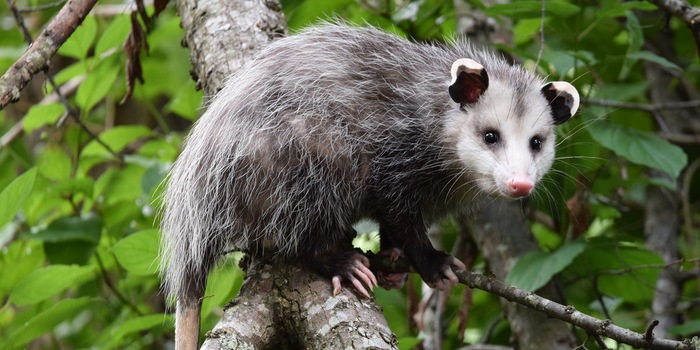
Humans infect animals with Covid
It jumped from wild animals to humans. And from us back into the animal world. Numerous species now carry Sars-CoV-2.
Sars-CoV-2 has spread worldwide since 2020, and billions of people have now come into contact with it and become infected. Whether the virus originally came from bats or raccoon dogs is still unclear. What is certain, however, is that the pathogen has found its way back into wild animals: Minks and North American white-tailed deer now carry the virus, as do numerous other species that come into contact with us. This is shown by Carla Finkielstein from Virginia Tech University and her team in a study on various relatively common species in Virginia.
The experts tested representatives of a total of 23 species for the virus itself or for antibodies directed against the pathogen, which indicate a previous infection. They took around 800 nasal and oral swabs and almost 130 blood samples. The researchers then detected corresponding traces in a total of six species: deer mice, opossums, raccoons, woodchucks, eastern cottontail rabbits and red bats. In one of the opossums analysed, the virus had also developed mutations that were previously unknown. Otherwise, the researchers mainly found lineages that closely matched the variants circulating in humans during the study period. This supports the hypothesis that the transmission took place from humans to animals, the scientists write.
The study also identified two mice in the same place and on the same day with exactly the same Covid variant, suggesting that they had either both been infected by the same human or that one mouse had infected the other. Unsurprisingly, animal populations living around hiking trails or places heavily frequented by humans were the most affected. They regularly come into contact with infected people and their droppings, which makes it easier for the virus to jump from one host to the next.
Finkielstein and his team can only speculate as to how exactly the transmission took place. Sars-CoV-2 can be detected in wastewater, for example, but it is unclear whether the viruses are still infectious in it. Instead, the scientists suspect that the animals have been infected via leftover food or waste in and on which the virus has survived. It is also unclear whether and how often the animals pass the pathogen on to each other.
Many of the species analysed are widespread in North America: It can therefore be assumed that they are also carriers of Sars-CoV-2 elsewhere and serve as a reservoir for the virus, which could jump from there back to humans.
Spectrum of science
We are partners of Spektrum der Wissenschaft and want to make well-founded information more accessible to you. Follow Spektrum der Wissenschaft if you like the articles.
Original article on Spektrum.deExperts from science and research report on the latest findings in their fields – competent, authentic and comprehensible.